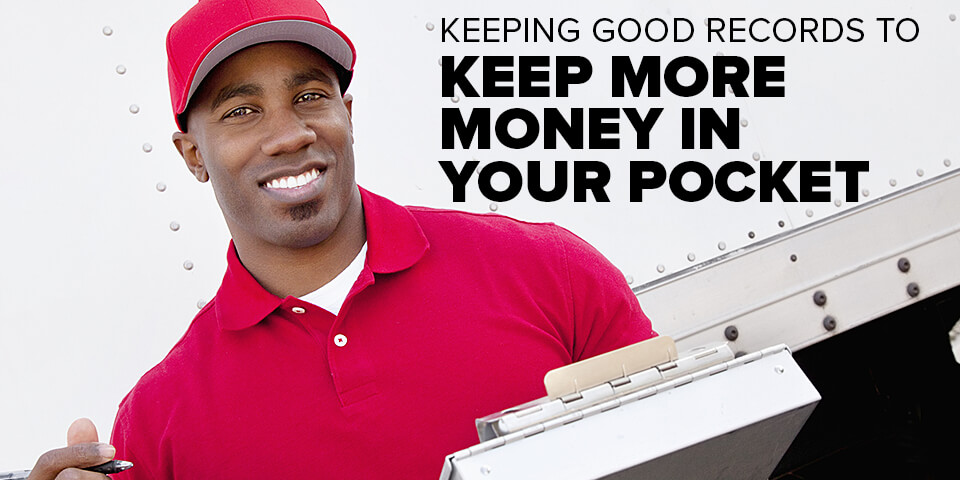
Keeping Good Records to Keep More Money in Your Pocket
How you keep and organize your business receipts can make a significant impact on how much profit you get to keep after filing your taxes.
That was a big topic of discussion in a workshop titled "Expedite Your Financial Well-Being" led by Jim O'Donnell, CEO and founder at Trucker Tax Service Inc., and owner-operator Linda Caffee with Freightliner Team Run Smart at Expedite Expo 2019 at the Allen County War Memorial Coliseum in Ft. Wayne, Indiana, in July.
In case you missed it, here are three critical takeaways from that session.
#1. Going old school can cost you.
Don't "do the shoebox," says O'Donnell.
He is referring to the old-school strategy of throwing receipts in a shoebox (or grocery bag) and then dropping off all those receipts for your tax preparer to sort through and record.
"If you drop a year's worth of receipts in front of a tax preparer, they're going to charge you a ton to go through all those receipts," says O'Donnell.
The solution: Create an effective system for organizing receipts.
"If you have your receipts categorized into fuel, maintenance, insurance, and whatever the category, [the tax preparer] can get through it all much faster," says O'Donnell. "And that will save you money."
Caffee says that she uses envelopes for her tracking system.
"In the truck, we have a place for all receipts," says Caffee. "That's where they're put until I can go through them and add them into my [software] program. And then I put them [back] into the envelope because when we go home, those receipts go into the house. They don't stay in the truck."
Does Caffee use separate envelopes by expense category or does she put all the receipts in one envelope?
"In the truck, I have one envelope. At home, I have multiple folders," says Caffee.
Which is easier: File by month or file by expense categories?
Caffee recommends filing by categories. "If the IRS questions me and says, 'I want all your fuel receipts from this date to this date,' I don't have to go through multiple folders. I have all my fuel receipts in one envelope."
#2. Use technology to preserve and organize receipts.
What can you do to preserve your receipts when it seems that many of them start to fade after just a week or two?
"I'm now taking a picture of that receipt and sending it to my computer and filing it that way," says Caffee. "This way, I have a picture and [a hard copy] filed. And then I use an online program where I enter my receipts in there and write on my receipts that I had recorded it. I reconcile each month to make sure I have my receipts entered."
The online program Caffee uses to organize her receipts is the TAPApp offered by Trucker Tax Service.
An audience member also recommended CamScanner, a smartphone app that creates a pdf record of your receipt.
Do you have to keep the hardcopy of the receipt after your scan?
O'Donnell says that, in most cases, the electronic copy should be sufficient. But he recommends keeping paper receipts for backup for "just in case."
"My favorite statement about the IRS," says O'Donnell, "is that the only thing consistent about the IRS is how inconsistent they are. And it can depend on the agent. That agent might say, 'No, I want to see your paper receipts.'"
But whatever you do, do NOT store your receipts in the truck without, at least, creating electronic copies. "I have a ton of stories from over the years about drivers whose trucks burned up and all their receipts went with it."
#3. Use credit and debit cards (vs. cash) whenever possible.
The idea here is to ensure that you will always have a record of the transaction, even if you misplace the receipt.
"A big tool is a credit card or debit card-and you use it for the purchase of everything," says O'Donnell. "I don't care if you're buying that $3.00 air freshener. Use the card. And if you lose the receipt, at least you have a paper trail."
